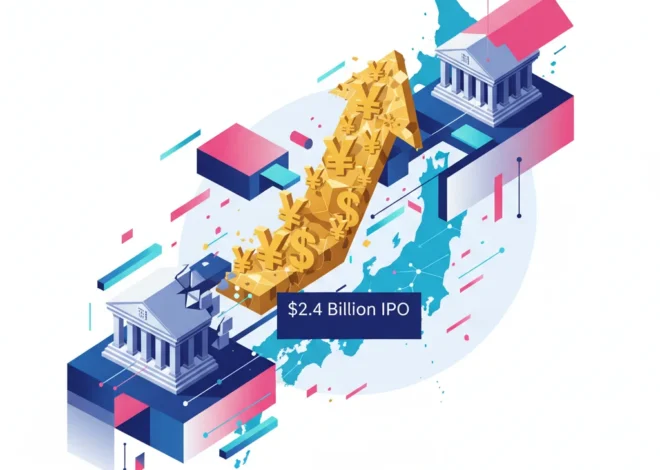
The Billion-Dollar Revolt: Why Private Equity is Waging War on Its Most Powerful Law Firm
A Power Shift in High Finance: The Unthinkable “Fire K&E” Movement
In the gilded corridors of private equity, where multi-billion dollar deals are forged and fortunes are made, a quiet but seismic shift is underway. For years, one name has been synonymous with legal dominance in this high-stakes world: Kirkland & Ellis. The world’s largest law firm by revenue, K&E has become the indispensable partner for private equity giants, a “one-stop shop” for navigating the complex labyrinth of modern finance. But the ground is trembling. A powerful whisper is turning into a roar, with a simple, audacious message being delivered from the investors who fuel the industry: “Fire K&E.”
This isn’t just a squabble over an invoice. It’s a full-blown investor revolt, a symptom of a broader economic malaise that is forcing a painful reckoning across the financial landscape. As reported by the Financial Times, Limited Partners (LPs)—the pension funds, endowments, and sovereign wealth funds that pour capital into private equity—are drawing a line in the sand. In an era of soaring interest rates, sluggish deal flow, and compressed returns, the once-unquestioned, eye-watering legal fees charged by firms like Kirkland & Ellis are now under an intense microscope. This is the story of how the money behind the money is finally fighting back, and what it means for the future of investing, corporate law, and the entire private equity ecosystem.
The King of PE Law: How Kirkland & Ellis Built an Empire
To understand the gravity of the “Fire K&E” movement, one must first appreciate the firm’s unparalleled dominance. Kirkland & Ellis didn’t just stumble into the private equity space; it conquered it. Through a combination of aggressive talent acquisition, a sprawling global footprint, and an unmatched expertise in everything from leveraged buyouts to complex bankruptcy proceedings, K&E made itself essential.
Private equity General Partners (GPs)—the firms like Blackstone, KKR, and Apollo that manage the funds—flocked to K&E for its ability to handle any deal, no matter the size or complexity. The firm became a critical piece of the deal-making machinery, its lawyers working around the clock to close transactions that reshape industries. This indispensability allowed K&E to command premium, and often astronomical, fees. For a long time, in a booming economy where deals were plentiful and profits were soaring, these costs were simply accepted as the price of doing business at the highest level. LPs, enjoying double-digit returns, rarely questioned the line items for legal expenses. But the music has stopped, and everyone is now looking for a chair.
The Washington-Buenos Aires Gambit: Why the U.S. is Betting on Argentina's Risky Economic Revolution
The Catalyst: When Economic Headwinds Fuel a Rebellion
The global economic environment has shifted dramatically. Central banks, led by the Federal Reserve, have hiked interest rates to combat inflation, fundamentally altering the calculus of private equity. The era of cheap debt that fueled a decade-long buyout bonanza is over. This has a two-fold effect:
- Slower Deal Flow: Higher borrowing costs make it harder and more expensive to finance large acquisitions.
- Difficult Exits: It’s tougher to sell portfolio companies for a profit, whether through an IPO on a shaky stock market or a sale to another buyer.
With returns squeezed, LPs are now meticulously combing through fund expenses. And K&E’s bills, which can run into the tens of millions for a single deal, stand out. The frustration is palpable. The very investors who provide the capital are realizing that a significant portion of their potential profits is being consumed by legal and advisory fees before they ever see a dime. The sentiment, as one prominent LP adviser put it, is that firms like K&E are “just billing way, way, way too much money on these deals” (source). This pressure from LPs puts GPs in a difficult position, caught between their most important investors and their most critical legal partner.
To illustrate the pressures mounting on investors, consider the key factors driving this new era of cost scrutiny:
| Driving Factor | Description | Impact on Scrutiny of Legal Fees |
|---|---|---|
| Higher Interest Rates | Central banking policies have increased the cost of borrowing, making leveraged buyouts more expensive and riskier. | Reduces potential deal profits, making every dollar of expenses, including legal fees, more significant to the final return. |
| Compressed Returns (The “Denominator Effect”) | As public market valuations fall, the private equity portion of an LP’s portfolio can become overweight, forcing them to be more selective and cost-conscious. | LPs have less tolerance for high ancillary costs and demand more value and efficiency from fund managers and their service providers. |
| Sluggish Exit Environment | Fewer opportunities to sell portfolio companies at a premium means cash is not being returned to LPs as quickly as before. | Increases the focus on the cash burn within funds, with large, recurring legal bills becoming a primary target for reduction. |
| Increased Transparency Demands | A broader trend in the investing world, where LPs are demanding more granular detail on all fund fees and expenses. | Massive, opaque legal invoices are no longer acceptable; LPs want justification and proof of value for every dollar spent. |
A System-Wide Problem: From Buyouts to Bankruptcies
While Kirkland & Ellis is the poster child for this revolt, the issue is systemic. The fee structure of the entire advisory ecosystem that supports high finance is under review. The FT article also highlights the “bankruptcy fee bonanza,” citing the case of auto-parts maker First Brands, where advisers are on track to charge over $60 million for their work. In both booming buyouts and distressed bankruptcies, the advisory firms—lawyers, bankers, and consultants—often seem to win big, regardless of the ultimate outcome for investors.
This raises fundamental questions about alignment of interests. Are these firms incentivized to be efficient, or to rack up billable hours? For decades, the complexity of modern economics and financial structuring provided a moat for these elite firms. However, as investors become more sophisticated and data-driven, they are better equipped to challenge the status quo. They are asking whether new technologies, from AI-powered contract review to more streamlined virtual data rooms, can bring much-needed efficiency and cost savings to a notoriously inefficient process.
Beyond the Headlines: How New Sewage Spill Fines Are Reshaping the Investment Landscape
The Ripple Effect: Why This Matters Beyond Private Equity
This conflict, seemingly confined to the elite world of private equity, has broader implications for investors, business leaders, and the market as a whole.
- For Investors: If you have exposure to private equity through your pension or other investments, these fees directly impact your returns. This push for cost control is a positive development that, if successful, could mean more capital is returned to LPs and their ultimate beneficiaries. It’s a reminder to always question the fee structures of any investment vehicle.
- For Business Leaders: The situation offers a powerful lesson in vendor management. Even when dealing with a dominant, seemingly indispensable partner, market conditions can create leverage to renegotiate terms. It underscores the importance of continuous cost-benefit analysis for all major professional service expenditures.
- For the Market: This is a microcosm of a larger trend of cost discipline sweeping across the corporate world. As the economy tightens, companies listed on the stock market are also under immense pressure to cut costs and protect margins. The scrutiny on legal fees in PE is mirrored by scrutiny on cloud computing costs, marketing spend, and headcount in the public sphere.
The scale of the deals involved, such as the Trump administration-era plan for Brookfield to invest $80 billion in an infrastructure program, highlights the stakes. The legal architecture for such monumental transactions is critical, but the cost must be justifiable. The current revolt is forcing a long-overdue conversation about what “justifiable” truly means.
Conclusion: The End of an Era or a New Beginning?
The “Fire K&E” movement is more than a hashtag or a negotiation tactic. It represents a fundamental challenge to the established order in the lucrative nexus of law and private equity. It’s a battle cry from the capital providers who are no longer willing to sign blank checks in a world of diminished returns. While Kirkland & Ellis is unlikely to be “fired” en masse, the firm, along with its elite peers, is being forced to listen.
The ultimate outcome will likely be a new equilibrium—one with more transparent billing, alternative fee structures, and a greater emphasis on efficiency. This investor-led rebellion is a powerful reminder that in the world of finance, no empire is unassailable, and even the most powerful players must ultimately answer to those who write the checks. The era of unquestioned legal spending is over, and the entire professional services industry would be wise to take note.
The Labubu Effect: How a Tiny Toy Signals Huge Shifts in Global Investing and the Consumer Economy


